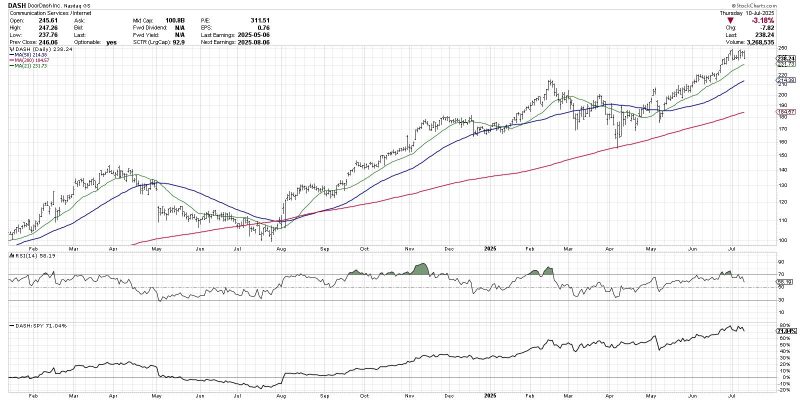
Pharmaceutical giant Merck is suing Medicare, claiming new drug‐pricing reforms that Congress enacted in last year’s Inflation Reduction Act coerce the company into selling its wares to the program at below‐market prices. In the Wall Street Journal, attorney Daniel Troy opines that the new rules violate the First and Fifth Amendments. Big, if true.
What’s really happening here is that Merck is making tons of money off the taxpayers and wants to keep the gravy train rolling. So the company is offering whatever bad arguments it can to prevent any reductions in its Medicare subsidies.
First, a few preliminaries.
The price Medicare should pay for all medical goods and services is $0.00. Anything that moves the actual price in that direction is a good thing. Some argue that is a recipe for failing to hit the market price. But that gets it exactly backward. Pushing the Medicare price toward $0.00 is the only way to get market prices.
Medicare’s administrative prices are government price‐setting. But they are not coercive price controls. Providers are always free to walk away.
Every single time providers—and especially pharmaceutical companies—complain about Medicare “price controls,” it is meritless rent‐seeking. Because they amount they should be getting from Medicare is $0.00.
Merck argues, to the contrary, that it is not free to walk away. It claims Congress is forcing the company to sell to Medicare at a price to which the company does not consent. If Medicare is truly coercing Merck, that’s bad, mkay? But it isn’t.
Here’s how the IRA’s new process for setting Medicare drug prices works.
If Medicare selects a Merck drug for price negotiation, Merck has until October 1 to enter into an “agreement” to negotiate a “maximum fair price.” Medicare’s opening bid must be at least 25 percent less than the current price.
If Merck does not enter into an “agreement” by October 1, “a noncompliance period would begin” that could result in “excise tax liability” for Merck.
If Merck enters into an “agreement,” it must sell the drug to Medicare at whatever price Medicare negotiates/dictates or pay an “excise tax.”
Merck may terminate the “agreement” for any reason, but the termination does not take effect until 11–23 months after Merck announces it. In the meantime, Merck must continue to sell the drug to Medicare at the price Medicare negotiated/dictated.
Is this actual coercion? Is it a takings in violation of the Fifth Amendment, as Merck alleges? No. Merck is rent-seeking—and hoping its use of the right shibboleths will trick conservative and libertarian legal scholars into rallying to the company’s cause.
First, Both Merck and the government are wrong to describe those “excise taxes” as taxes. Merck’s own lawyers admit, “the excise tax is suspended if the manufacturer has no relationship with Medicare or Medicaid.” Taxes are compulsory; these “taxes” are optional. Ergo, it’s not a tax. The correct way to think of those payments is that Merck would be rebating to the government a portion of the subsidies it receives from taxpayers through Medicare and Medicaid. In essence, those rebates are an across‐the‐board reduction in the prices Medicare and Medicaid pay for Merck’s products. No one is taxing Merck, just reducing their government subsidies.
Since those “excise taxes” are not taxes, the government is not compelling Merck to enter an “agreement.” Merck is free to decline. If the resulting rebates Merck must pay mean its government “book of business” is unprofitable, it can walk away from federal health programs.
Not even the 23‐month period that Merck would have to continue selling the drug to Medicare at the Merck‐unfriendly price is coercive. Merck has received plenty of notice of that condition. Merck was aware of that provision as Congress debated the law in 2021. And when Congress passed it. And when President Biden signed it in August 2022. And when Medicare announced in March 2023 how it would be implementing these provisions. Merck has had and will continue to have plenty of opportunities to avoid those conditions. It could have avoided them at any time from when Congress began debating them in 2021 until now. It could avoid them today. It could avoid them by refusing to enter into an “agreement.” At any of these points, Merck could avoid these conditions of Medicare participation without coercion.
What about the argument that threatening Merck with exclusion from government programs is effectively coercion because Medicare and Medicaid represent a yuge part of Merck’s business? We can firmly reject this argument, too.
Is it coercion when people don’t want to buy what you’re selling at the price you’re selling it? Were all those employers who didn’t hire you coercing you? Do patients coerce hospitals when they switch to lower‐price competitors? Then neither is this. Losing business hurts. But it’s not coercion.
The fact that people would even think to equate Merck losing government business to coercion shows just how much government dominates health care in the United States. The fact that some people—including many limited‐government conservatives—would rather let the government overpay than threaten Merck’s profit margins is an example of how all that government domination introduces moral hazard into these decisions.
Since no part of this process is coercive, Merck’s other claims of coercion (compelled speech, etc.) are also inaccurate.
In case we needed more evidence that Merck is just rent-seeking—that is, attempting to gouge taxpayers—the company describes the prices it currently receives from Medicare as reflecting “fair market value” and Medicare’s current drug‐pricing rules as “a free‐market approach based on market‐driven prices.” Troy describes what Medicare pays as a “market price.”
These are major tells. There are no market prices in the U.S. health sector. What Sherry Glied says of health care prices in general is especially true of Medicare prices: “There is no reason to believe that current prices provide incentives that reflect either underlying costs or consumer preferences.” A good rule of thumb is that if an industry claims the price it receives from government reflects fair market value, that price is too high.
It is conceivable, though inadvisable, that federal courts might disagree with me. They may decide to impose notice requirements more stringent than common sense requires. They may choose to define what Congress is doing in this case as coercive. If so, those decisions would mark breathtaking opportunities for special interests to follow in Merck’s footsteps by taking advantage of taxpayers.








